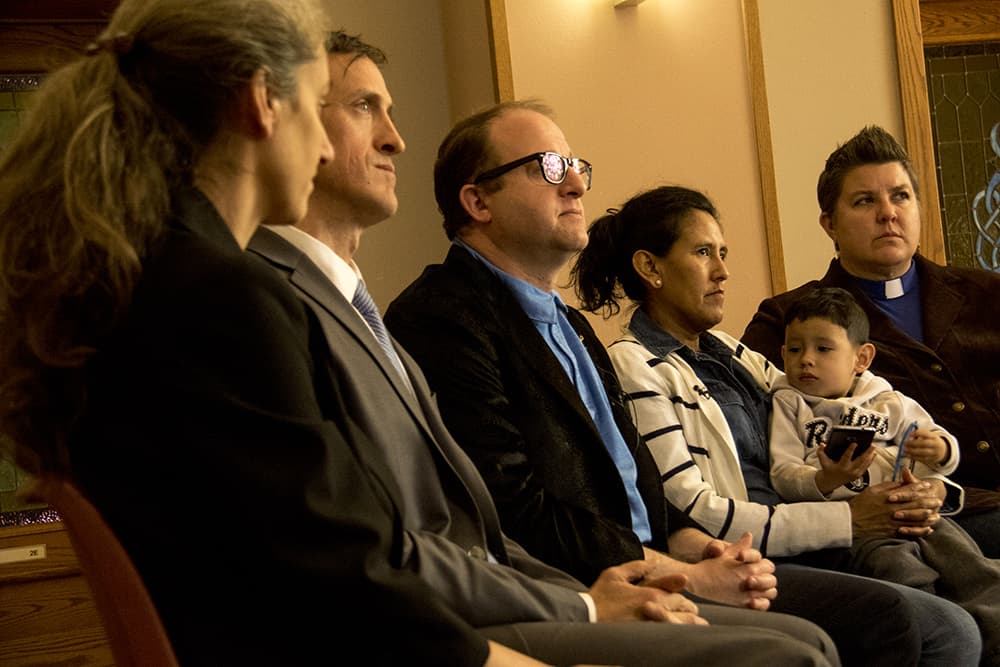
U.S. Rep. Jared Polis does not believe Immigrations and Customs Enforcement followed its own procedures in the case of Jeanette Vizguerra, probably Colorado's most famous undocumented immigrant, and he suggested Friday that a "rogue ICE official" wanted to punish Vizguerra for speaking out about her case.
Vizguerra, a native of Mexico and the mother of three U.S. citizen children, has been fighting deportation since 2009. She was caught driving on false documents. She's now eligible for something called a U-Visa, which is granted to victims and witnesses to crimes who are cooperating with prosecutors. Getting a U-Visa would allow her to stay in the U.S. and eventually apply for U.S. citizenship, but there is a long backlog.
ICE has repeatedly approved stays of deportation for Vizguerra, but last month, because Vizguerra believed she was about to be detained, she skipped her appointment and instead took sanctuary at First Unitarian Society of Denver, where she's been living for 23 days now. ICE has issued a deportation order in her case.
"Jeanette is facing a situation that nobody should have to face," Polis said. "She has a legal way of being here that is pending. She has a U-Visa pending. It takes several years to get. The normal custom is that ICE defers deportation during that processing time, which makes sense because if she leaves, she won't be able to return back to her own American kids."
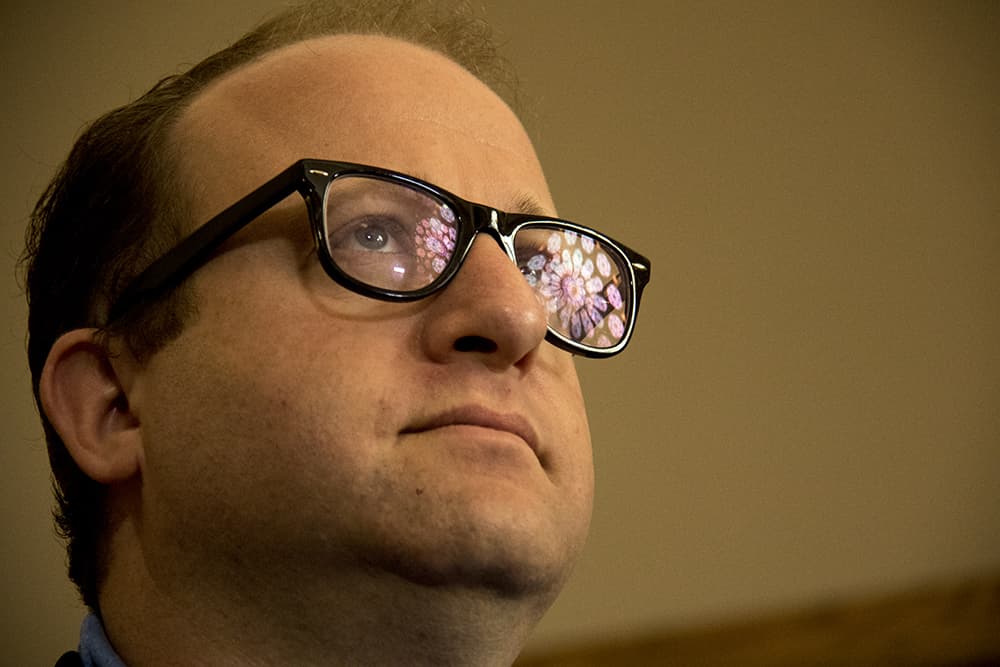
Polis, a Boulder Democrat, has filed a private bill in Congress to get legal status for Vizguerra, and he is sending a letter along with U.S. Sen. Michael Bennet and U.S. Rep. Diana DeGette of Denver asking that Vizguerra's deportation be delayed. At the same time, Vizguerra's attorney, Hans Meyer, is asking for expedited review of her visa application.
"There is a rogue ICE agent named Jeff Lynch who has broken with protocol and broken with what the agency normally does," Polis said.
Polis repeatedly referred to Lynch, who is the deputy field director in Colorado, by name. He said that's because he believes he should be held accountable for following procedures and for responding to requests for information from Vizguerra's attorney and from his office, which they say he has not done.
ICE spokesman Carl Rusnok did not address specific questions about Vizguerra's case, but said in an emailed statement that vilifying officers doesn't help improve relationships between ICE and the communities they serve.
"ICE officers are federal law enforcement officials who are sworn to protect and defend the Constitution of the United States. They perform a vital function within the Department of Homeland Security by enforcing the U.S. immigration laws passed by Congress, in furtherance of public safety and the national security of our country," he said. "Every day, these dedicated public servants perform these difficult and often dangerous duties with professionalism and integrity. Name-calling and vilifying these officers does nothing to further positive relationships between ICE and the communities they serve."
In recent weeks, there have been numerous cases where ICE detained people who seem from the outside like they would have previously been a low priority. They include a young woman with DACA status in Mississippi detained after she held a press conference about immigration issues and a woman in Texas who was in court to get a restraining order against her boyfriend. The New York Times interviewed ICE agents who felt they had "new freedom" under the Trump administration. It has not been clear to what extent the agency has formally changed its deportation priorities and to what extent agents are acting on their own accord. Polis said energy spent on people like Vizguerra is energy not spent finding and deporting violent criminals.
Vizguerra's case has been in the news repeatedly over the years, and reporters filled the chapel of First Unitarian to hear Polis, Meyer and Vizguerra talk about her case.
"I am one person who puts my face forward for other people," Vizguerra said.
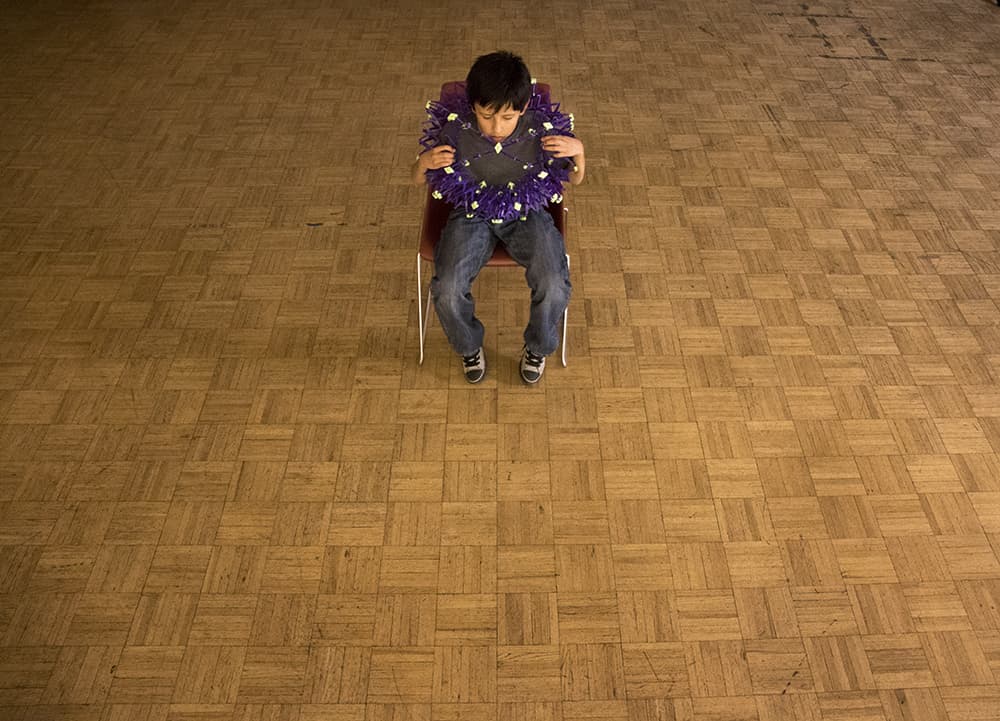
Here's what Polis and Meyer say ICE didn't do:
Vizguerra requested an extension of her stay of deportation roughly two months before her annual check-in with ICE. That request included information about her U-Visa application, which was filed in February 2016, shortly after her last stay of deportation was issued.
At that point, ICE should have sought verification that Vizguerra's U-Visa application was valid. Meyer and Polis said they repeatedly asked for evidence -- a copy of an email or other documentation -- that showed that ICE in Denver sought that verification before her appointment on Feb. 15. None has been provided.
"It seems to indicate there is some sort of personal ICE vendetta against Jeanette Vizguerra because there is no explanation for why they didn't make that request, why they didn't provide proof to either my office or the congressman's office so we could resolve that issue," Meyer said.
Vizguerra's previous stays of deportation were granted under the Obama administration. This most recent stage of the process played out after President Donald Trump's election, though Barack Obama was still president when she requested her stay.
Meyer said that ICE has now agreed Vizguerra does have a valid visa application pending but will not reconsider its deportation order. ICE has maintained Vizguerra is facing deportation because she skipped out on her meeting, while Meyer says she had very good reason to believe she would have been detained anyway.
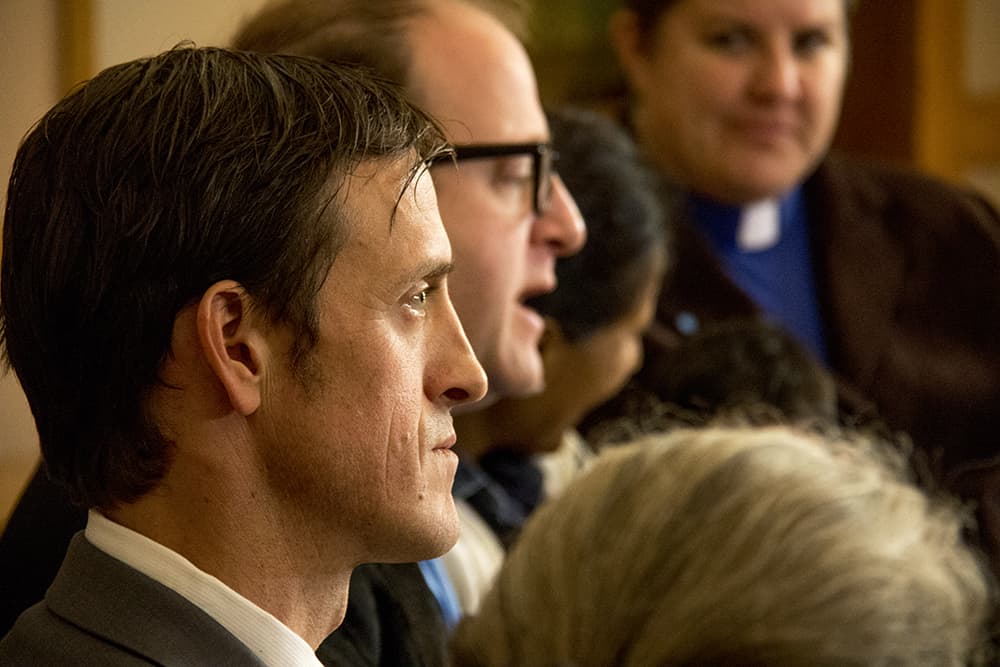
Vizguerra entered sanctuary in a very public way, and ICE is aware of her location. ICE has long maintained the custom of not entering houses of worship; nonetheless, on the inside of the doors at First Unitarian are detailed instructions for what to do if law enforcement or immigration enforcement show up.
"Jeanette is essentially a prisoner here of her own accord," Polis said. "She cannot leave this property without risking deportation. Unless this deferral is granted, Jeanette might have to be here for months or years while she waits for legal status to come through. It's an absurd situation."
An expedited review of Vizguerra's visa application might take a few weeks or a few months, but once her request is granted, it could be five to six years before she actually gets the visa. The United States only grants 10,000 U-Visas a year, and there is a long backlog. Even if everyone agrees she qualifies, she has to wait for one to become available.
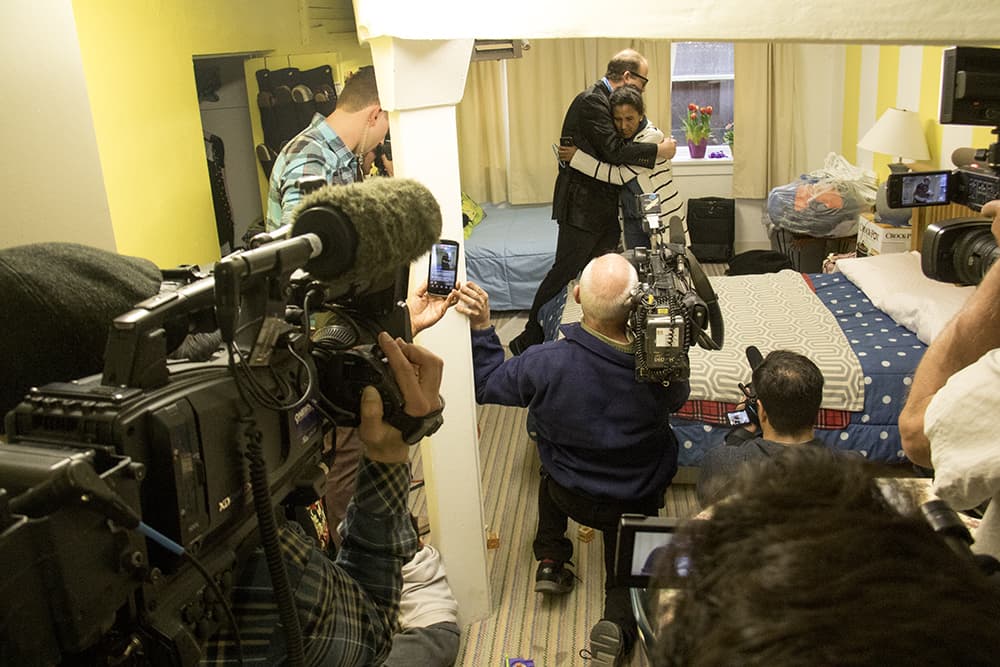
Polis noted that while Vizguerra has a compelling personal case and a route to legal status, she's representative of thousands of other people, many of whom don't have a clear path to legal status under the current rules. Polis said this case pointed to the need for comprehensive immigration reform that includes a pathway to legalization and citizenship.
On Facebook, Vizguerra shared messages she'd received that criticized her for not getting legal status earlier. Before she became eligible for the U-Visa, there wasn't any clear way for her to do that. The authors of the messages said they supported Trump's agenda and that Vizguerra should go back to Mexico.
Polis said there is a broader public interest in allowing Vizguerra to stay.
"We have a strong state interest in keeping families together and allowing her to work and support and be there for her American children," he said. "Yet because of the actions of rogue ICE agent, Jeff Lynch, that's all been put in disarray."
"I need this immigration system change," Vizguerra said. "I push my case. He is very angry with me, the person pushing everybody. ... I don't know how long I will live here. Maybe four years. But I will continue."
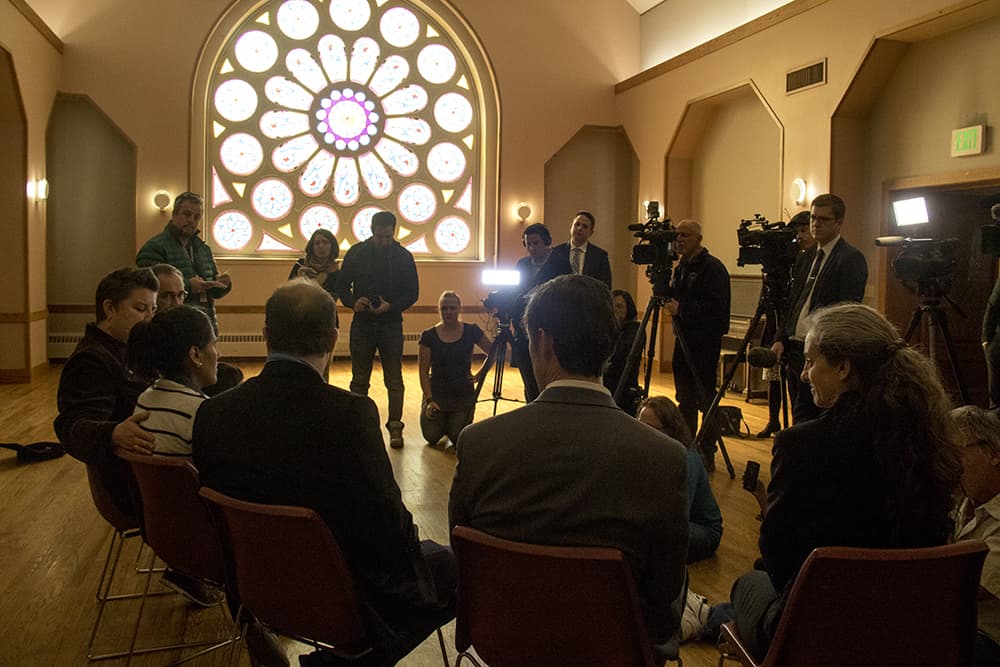
This article has been updated with comment from ICE.













